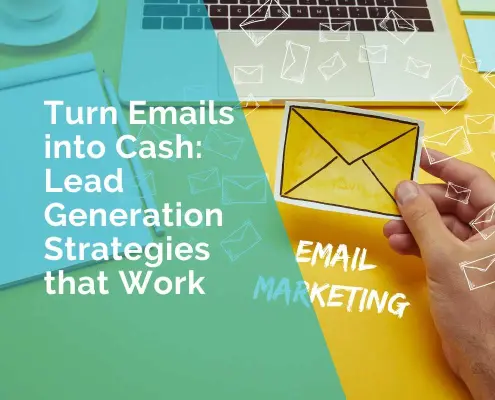Website Marketing for Small Business: Strategies for Success
Website marketing is a crucial component of small business success, however, in a crowded digital marketplace, simply having a website is not enough; you need to market it effectively. In this article, we’ll explore the key strategies for successful website marketing, focusing on how businesses can attract, engage, and retain customers.
The Importance of Website Marketing
Website marketing involves a range of techniques and tactics designed to promote your website, increase its visibility, and ensure it ranks highly in search engines. With billions of people accessing the internet daily, having a website that stands out can make or break a business. Website marketing helps in:
- Brand Visibility: A well-executed website marketing strategy helps your brand appear in front of potential customers. The more visible your site is, the higher the chances of attracting visitors who may convert into customers.
- Audience Engagement: Beyond just attracting traffic, website marketing encourages interaction with your content. Whether it’s through blog posts, landing pages, or social media integration, engagement is key to building lasting relationships with your audience.
- Lead Generation and Conversion: The ultimate goal of website marketing is to turn visitors into leads and then into paying customers. Optimized websites help guide users through the sales funnel, from initial contact to final purchase.
- Competition: Virtually every industry now has stiff competition online. Website marketing allows you to stay competitive, ensuring that your business isn’t lost among the countless others vying for attention.
Key Strategies for Effective Website Marketing
Let’s dive deeper into some essential strategies for successful website marketing.
1. Search Engine Optimization (SEO)
SEO is the backbone of website marketing. It ensures that your website ranks well in search engine results pages (SERPs), making it easier for potential customers to find you. SEO includes a variety of practices, including:
- Keyword Research: Identifying the most relevant keywords your target audience uses when searching for products or services like yours.
- On-Page SEO: Optimizing individual pages of your site, including meta descriptions, header tags, and content structure, to ensure they are search engine friendly.
- Off-Page SEO: Building backlinks from reputable websites to improve your site’s domain authority, which can boost your rankings in search results.
- Technical SEO: Ensuring that your website’s backend is optimized for performance. This includes having a responsive design, fast loading speeds, and secure HTTPS protocol.
One often overlooked but highly valuable aspect of SEO is ensuring privacy and security for your users. This is where residential proxies come into play. By using residential proxies, businesses can carry out advanced SEO tasks such as location-based searches and competitor analysis without being flagged by search engines.
2. Content Marketing
Content is king in the world of digital marketing. It drives traffic, engages visitors, and helps establish your brand as an authority in your industry. Here’s how to use content marketing effectively for your website:
- Blogging: Regularly posting informative and engaging articles on topics related to your business not only keeps your audience informed but also boosts your SEO efforts. Search engines love fresh, relevant content, and blogging is one of the best ways to provide it.
- Video Content: Videos are highly engaging and can capture your audience’s attention more effectively than text alone. Whether it’s tutorials, product demonstrations, or customer testimonials, video content can enhance the user experience and drive conversions.
- Infographics: Visual content such as infographics can simplify complex topics and make information easier to digest. Infographics are also highly shareable, increasing your content’s reach on social media platforms.
3. Social Media Marketing
Social media has become an integral part of website marketing. Platforms like Facebook, Instagram, Twitter, and LinkedIn offer unique opportunities to engage with your audience, share content, and drive traffic back to your website. Here are a few ways to leverage social media effectively:
- Share Content: Use social media to share your blog posts, videos, and other content to a broader audience. Engaging captions and visuals can increase shares and clicks, driving more traffic to your website.
- Engage with Your Audience: Social media allows for real-time interaction with your audience. Responding to comments, questions, and messages promptly helps build trust and fosters community engagement.
- Paid Advertising: Most social media platforms offer paid advertising options. These ads allow you to target specific demographics, ensuring that your content is reaching the right people.
4. Pay-Per-Click (PPC) Advertising
PPC advertising is another powerful tool for website marketing. Unlike organic traffic, PPC ads give you instant visibility by placing your ads at the top of search engine results or on relevant websites. The most common form of PPC advertising is Google Ads, but platforms like Facebook and Instagram also offer PPC options.
Here are some best practices for PPC campaigns:
- Targeting: Ensure that your ads are targeting the right audience based on factors such as location, interests, and demographics.
- A/B Testing: Run different versions of your ads to determine which performs best. Test variations in ad copy, images, and calls-to-action to optimize your campaigns.
- Budget Management: PPC can become expensive if not managed correctly. Set daily or monthly budgets and monitor your campaigns regularly to ensure you’re getting the best return on investment.
5. Email Marketing
Despite the rise of social media, email marketing remains one of the most effective ways to reach and convert your audience. A well-executed email marketing campaign can nurture leads, build customer loyalty, and drive repeat sales. Here are some email marketing strategies to implement:
- Build Your Email List: Offer value to your website visitors in exchange for their email addresses. This could be in the form of exclusive content, discounts, or a free eBook.
- Segmentation: Divide your email list into segments based on factors such as purchasing behavior, location, or engagement level. This allows you to send targeted messages that are more likely to resonate with each group.
- Automation: Use email marketing automation to send personalized messages at scale. For instance, set up automated emails to welcome new subscribers, promote special offers, or remind customers about abandoned carts.
6. Analytics and Data-Driven Marketing
To succeed in website marketing, it’s essential to track your performance and make data-driven decisions. Tools like Google Analytics can provide invaluable insights into how your website is performing and where there is room for improvement. Metrics to monitor include:
- Traffic Sources: Understand where your website traffic is coming from (organic search, social media, paid ads, etc.).
- User Behavior: Analyze how visitors interact with your site. Which pages are they visiting? How long are they staying on each page?
- Conversion Rates: Track how many visitors are taking desired actions, such as making a purchase or signing up for your email list.
By using this data, you can refine your marketing strategies to maximize results and ensure that your website is performing at its best.
7. Conversion Rate Optimization (CRO)
Attracting visitors to your website is only half the battle; the other half is converting them into customers. Conversion Rate Optimization (CRO) focuses on enhancing your website’s design and content to increase the percentage of visitors who take a desired action. Here are a few ways to improve your conversion rate:
- Compelling CTAs: Your Calls to Action (CTAs) should be clear, concise, and enticing. Whether it’s “Buy Now,” “Sign Up,” or “Learn More,” CTAs should guide users toward the next step in their journey.
- User-Friendly Design: A well-designed website that is easy to navigate is more likely to convert visitors. Ensure your site is mobile-friendly, loads quickly, and has a logical structure.
- Trust Signals: Adding customer reviews, testimonials, or trust badges can reassure visitors that your business is reputable and trustworthy.
8. Leveraging Residential Proxies for Advanced Marketing Strategies
For businesses involved in more advanced digital marketing tactics, such as gathering competitive intelligence, scraping data, or managing multiple social media accounts, residential proxies are a vital tool. These proxies use IP addresses provided by Internet Service Providers (ISPs) rather than data centers, making them appear as real residential users.
Residential proxies help marketers in several ways:
- Avoid IP Blocking: When conducting large-scale web scraping or crawling tasks, websites may block your IP address if they detect unusual behavior. Residential proxies mitigate this risk by rotating IP addresses, making your activity appear more natural.
- Location-Based Targeting: If your business operates in multiple regions, residential proxies allow you to conduct SEO and PPC campaigns based on specific geographic locations. This can give you a competitive edge by allowing you to analyze local search results and tailor your strategies accordingly.
Incorporating residential proxies into your website marketing strategies can provide a robust foundation for advanced techniques, helping your business stay ahead in a competitive online landscape.
9. Local SEO and Google My Business
For businesses that rely on local customers, local SEO and Google My Business (GMB) are critical components of website marketing. Local SEO helps ensure your website ranks for searches relevant to your geographical location, while a GMB profile enhances your visibility in local search results. Here’s how to optimize for local SEO:
- Optimize GMB Profile: Ensure your GMB profile is fully completed, including your business name, address, phone number, and operating hours. Encourage customers to leave reviews, as positive ratings can boost your local rankings.
- Local Keywords: Incorporate local keywords into your website content, such as city or neighborhood names. This helps search engines understand where your business operates and improves your chances of appearing in local search results.
- Local Backlinks: Reach out to local businesses, bloggers, and organizations for link-building opportunities. Backlinks from reputable local sources can improve your site’s domain authority and local rankings.
Conclusion
Website marketing is a multifaceted endeavor that requires a strategic blend of SEO, content marketing, social media engagement, and data-driven optimization. By incorporating residential proxies, businesses can elevate their marketing tactics and remain competitive in an ever-evolving digital landscape. Whether you’re a small business owner or part of a larger corporation, following these strategies can help your website attract more traffic, generate leads, and convert visitors into loyal customers.
***
Reg












